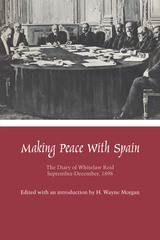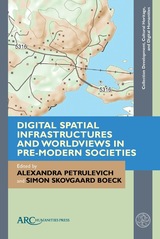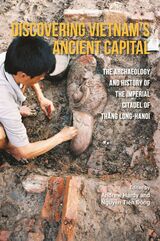
No one can deny how September 11, 2001, has altered our understandings of "Peace" and "Justice" and "Civil Conflict." Those have become words with startling new life in our vocabularies. Yet "making" peace and "doing" justice must remain challenges that are among the highest callings of humanity—especially in a terror-heightened world. Nigel Biggar, Christian ethicist and editor of this now more than ever "must read" (Choice) volume, newly expanded and updated, addresses head-on the concept of a redemptive burying of the past, urging that the events of that infamous date be approached as a transnational model of conflict-and suggesting, wisely and calmly, that justice can be even the better understood if we should undertake the very important task of locating the sources of hostility, valid or not, toward the West.
Burying the Past asks these important questions: How do newly democratic nations put to rest the conflicts of the past? Is granting forgiveness a politically viable choice for those in power? Should justice be restorative or retributive? Beginning with a conceptual approach to justice and forgiveness and moving to an examination of reconciliation on the political and on the psychological level, the collection examines the quality of peace as it has been forged in the civil conflicts in Rwanda, South Africa, Chile, Guatemala and Northern Ireland.
There are times in history when "making peace" and "doing justice" seem almost impossible in the face of horrendous events. Those responses are understandably human. But it is in times just like these when humanity can—and must—rise to its possibilities and to its higher purposes in order to continue considering itself just and humane.


Whitelaw Reid, according to H. Wayne Morgan, was a “leading newspaperman, more than an occasional diplomat, a power in his party’s politics, a supporter of some of the best in his era’s culture . . . Of all his legacy, perhaps the record he left of his part in the Peace of Paris is the most significant and most interesting. It not only reveals the workings of his mind and of the peace conference, but also suggests the complex currents that carried his country into the realities of world power in the twentieth century.”
In editing Reid’s diary, Morgan used much material pertinent to the Paris Peace Conference of 1898, employed here for the first time. This material is a rich assortment of archival matter: the Reid Papers, the John Hay Papers, the John Bassett Moore Papers, and the McKinley Papers, in the Library of Congress; the Peace Commission records, in the National Archives; and unpublished materials in the Central Files of the Department of State.
Whitelaw Reid, as a war correspondent during the Civil War, as clerk of the House Military Affairs Committee, and later as a successor to Horace Greeley on the Tribune, gained access to the leaders of his times and insight into their actions. In 1889 he was appointed U.S. Minister to France by Harrison, and in 1892 he had the dubious honor of being chosen as Harrison’s running mate on the losing presidential ticket. An influential friend and supporter of President McKinley and an occasional advisor to him, Reid was no stranger to politics and to international diplomacy when McKinley appointed him to the Peace Commission that wrote the treaty concluding the Spanish-American War. As a matter of fact, Reid’s opinion reflected the administration’s attitude of expansionism, the policy of Manifest Destiny—or “imperialism,” as it was later called.
Reid’s diary records the details of the sessions of the Joint Peace Commission of Paris from September through a large part of December of 1898. His day-by-day entries reveal the complexity of issues to be considered, the tactics of both the Spanish and the American Commissions in attempting to gain advantage for their respective governments, the interplay of the personalities of the once-proud Spaniards and the brash Americans, the political objectives influencing the points of view of the various members, and the maneuverings that brought about the final resolution of debated issues.

In this compelling and rigorously documented exposition, Vandana Shiva demolishes the myths propagated by corporate globalisation in its pursuit of profit and power and shows its devastating environmental impact.
Shiva argues that consumerism lubricates the war against the earth and that corporate control violates all ethical and ecological limits. She takes the reader on a journey through the world's devastated eco-landscape, one of genetic engineering, industrial development and land-grabs in Africa, Asia and South America. She concludes that exploitation of this order is incurring an ecological and economic debt that is unsustainable.
Making Peace with the Earth outlines how a paradigm shift to earth-centred politics and economics is our only chance of survival and how collective resistance to corporate exploitation can open the way to a new environmentalism.
READERS
Browse our collection.
PUBLISHERS
See BiblioVault's publisher services.
STUDENT SERVICES
Files for college accessibility offices.
UChicago Accessibility Resources
home | accessibility | search | about | contact us
BiblioVault ® 2001 - 2024
The University of Chicago Press









